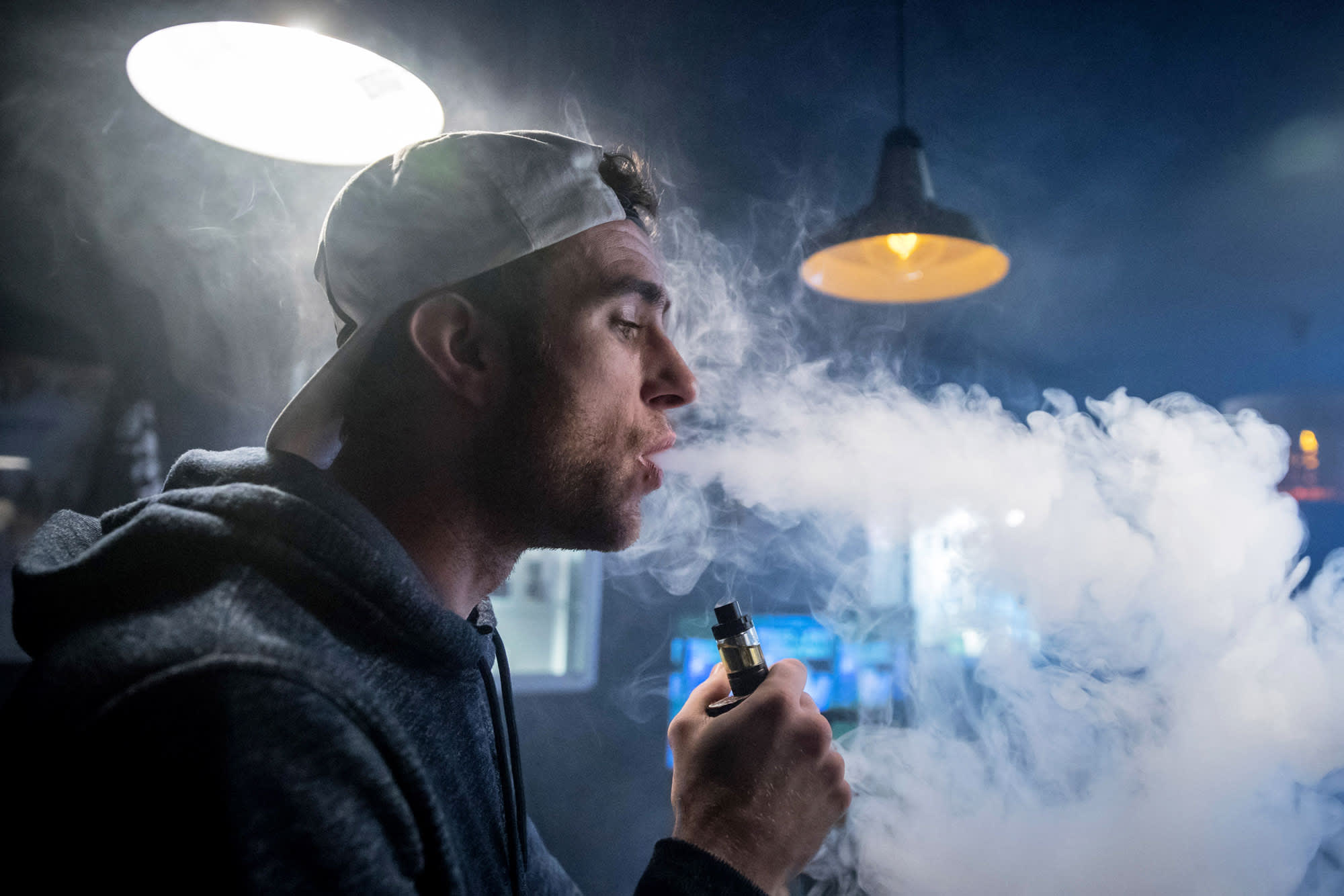Michigan becomes first state to ban sales of flavored e-cigarettes

Getty Images
Michigan is the first state to ban sales of flavored e-cigarettes in a move the governor says will curb teen vaping.
Gov. Gretchen Whitmer directed the state health department to issue emergency rules to ban the sale of flavored nicotine vaping products in stores and online, the governor's office said Wednesday. She will also restrict marketing, preventing companies from advertising vaping products as "clean," "safe," "healthy" and other terms that portray the products as "harmless."
Whitmer, a Democrat, used her executive authority to impose a six-month ban on the sale of flavored e-cigarettes. The ban can be renewed for another six months. Whitmer told MSNBC in an interview Wednesday morning that she hopes Michigan lawmakers will write the ban into law.
"As governor, I'm going to do it unilaterally until I can get the legislature to adopt a statute and write it into law," Whitmer told MSNBC. "This is too important."
U.S. health officials are investigating 215 possible cases of severe lung disease associated with vaping across 25 states, the Centers for Disease Control and Prevention and the Food and Drug Administration said in a joint statement Friday.
As of now, it does not appear the cases are linked to one particular product, the agencies said, noting that in "many" of the cases, patients reported using THC or CBD, compounds found in cannabis.
While the cause for the illnesses is unclear, it's given public health officials more ammunition in their fight to curb vaping.
"This situation, and the rising tide of youth tobacco use, is a top public health priority for the Trump administration," Health and Human Services Secretary Alex Azar said in a statement last week.
Michigan joins a growing list of governments trying to ban flavored vaping products, which health officials say attracts kids. San Francisco, earlier this summer, became the first U.S. city to prohibit the sales of flavored e-cigarette products. Lawmakers in Boulder, Colorado, passed a similar measure last week.
E-cigarettes are generally considered less harmful than smoking cigarettes. But regulators and health officials are concerned about a teen vaping epidemic as millions of underage kids pick up the habit. Health officials worry that a new generation is becoming addicted to nicotine after years of progress curbing cigarette smoking.
Flavors are central to the debate. Some say flavors like bubble gum and mango lure teens to e-cigarettes while vaping advocates say they help adults to stop smoking.
American Heart Association CEO Nancy Brown applauded Michigan's ban on flavored e-cigarettes, saying it will "protect Michiganders, particularly the state's youth, from the known and unknown potential health risks of e-cigarette use."
American Vaping Association President Gregory Conley said the ban "could send tens of thousands of ex-smokers back to deadly combustible cigarettes." He pledged in a statement to fight any lawsuits against the ban, citing an example last year when the New York Department of Health's attempt to implement a flavor ban was withdrawn for further legal review.
Juul, the market-leading e-cigarette manufacturer that some accuse of fueling the surge in teen vaping, said it would support a ban on flavors that "mimic kid-specific candies, foods and drinks." The company's flavors include mango, fruit, cucumber and creme. Juul stopped selling these flavors in stores last year and continues to sell them on its age-restricted website.
A spokesman said Juul thinks menthol products, including its mint flavor, helps "encourage adult smokers to switch" and "should be available at retail alongside tobacco and menthol-based cigarettes." The FDA is in the process of trying to ban menthol cigarettes, saying research shows menthol advertising attracts kids and disproportionately targets minority groups and African Americans.
No comments